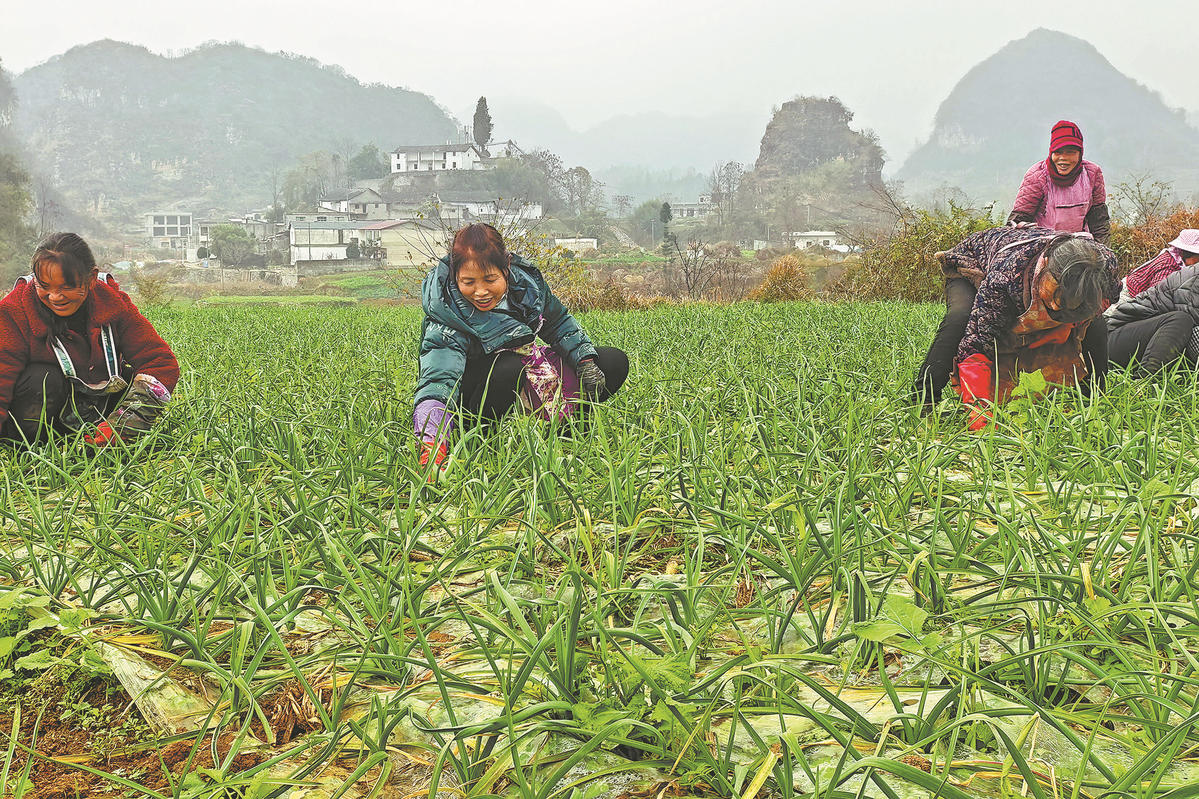Nation's green tech experience coveted

China's valuable experience in sustainable economic development featuring green technological innovations can help other developing countries better balance economic growth and protect ecosystems, thereby contributing more to global environmental protection efforts, said experts and officials.
They made the remarks at a recent seminar hosted by the China-WBG Global Center for Ecological Systems and Transitions, a knowledge-sharing platform.
It was jointly established by the Ministry of Finance and the World Bank Group last year, aiming to share China's development philosophy and practical experience in ecological conservation while fostering knowledge exchange and mutual learning among countries.
Delivering a speech at the opening of the seminar, Liao Min, vice-minister of finance, said that technological innovation has been a key driver of sustainable development. Over the past decades, both the public and private sectors in China have steadily ramped up their investments in green technologies.
"China's experience shows economic growth and technological improvement can reinforce each other if they choose the right path," Liao said.
China has continued to optimize its industrial structure and accelerate the transformation of its development model, achieving a significant reduction in energy consumption and pollution emissions while maintaining rapid economic growth.
Its "new trio" — electric vehicles, lithium-ion batteries and solar cells — represents sectors that have experienced explosive growth, underscoring the country's success in driving green transformation.
This year's Government Work Report said that China achieved a reduction of over 3 percent in energy consumption per unit of GDP in the past year. The report also pledged to accelerate the development of the green, low-carbon economy, while actively and prudently working toward peaking carbon emissions and achieving carbon neutrality.
The vice-minister said that protecting the environment and achieving sustainable development are major development issues that human society should jointly address.
Even though there is some chatter about — and retreat from — international consensus on climate challenges, China is working together with other countries to pursue ambitious agreements on the global ecological agenda, he added.
Manuela V. Ferro, vice-president for East Asia and Pacific at the World Bank Group, said China is deeply engaged in advancing the global ecological agenda.
China's development model, transition pathway and experience in ecological governance offer valuable insights not only for other developing nations, but also for developed countries, Ferro said.
Liao pointed out that China has not only actively engaged in global efforts on climate change response and biodiversity conservation, but has also extended tangible support to other developing nations under the South-South cooperation framework.
He hopes the World Bank and other multilateral development banks will provide greater financial, technical and knowledge support for ecological protection in developing countries.
"We look forward to the China-WBG Global Center for Ecological Systems and Transitions serving as an effective platform for knowledge sharing, contributing to global efforts in ecosystem restoration and green transformation," Liao said.
Sun Shuxian, vice-minister of natural resources, said that in the face of climate change, biodiversity loss and land degradation, the international community and countries around the world have shown great concern and are actively taking steps to address these pressing challenges.
He suggested that the center strengthen knowledge sharing, promote advanced international concepts and approaches, and showcase China's innovative measures, practical experiences and successful cases in ecological conservation and restoration.
Liu Zhihua contributed to this story.




































